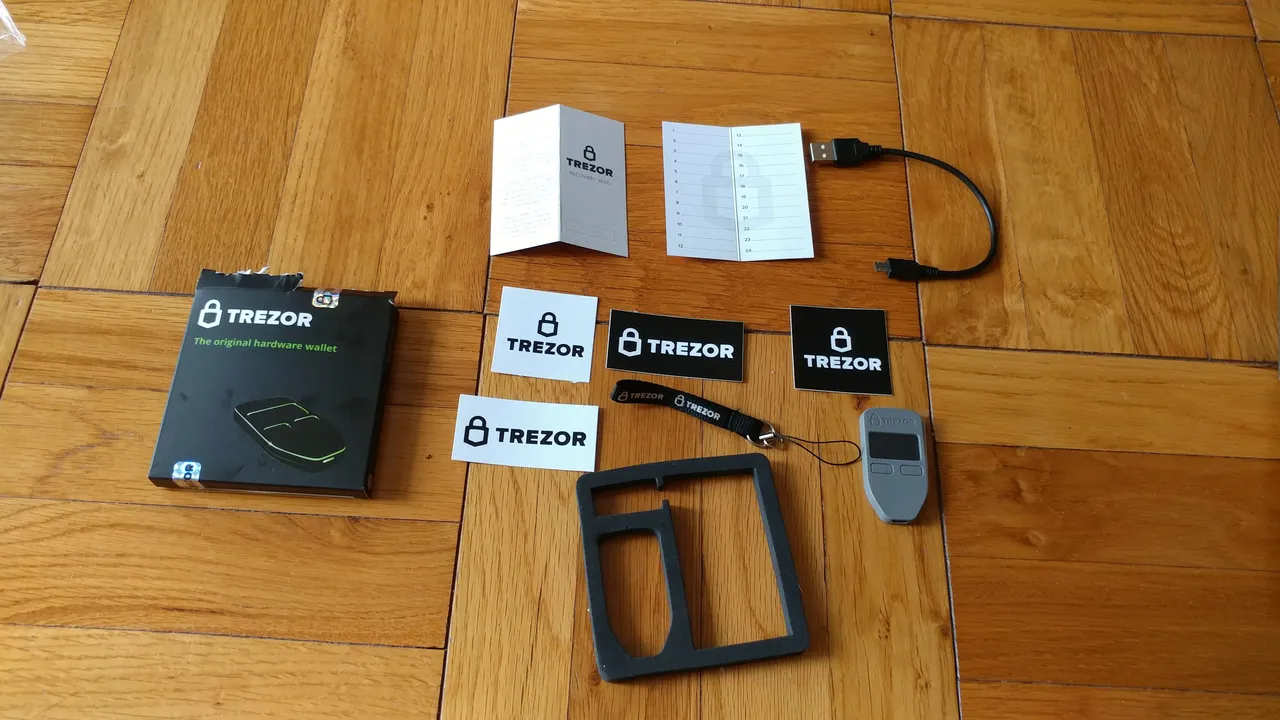We all know about Cryptocurrency "best practices". They involve things like...

- Using a hardware wallet or paper wallet for longterm storage of coins we plan on keeping for a longtime.
- Not keeping a lot of money on exchanges, and not keeping money on exchanges were not actively trading with.
- Spreading ourselves out across multiple exchanges, don't be 100% into a single exchange.
- Have a computer strictly for crypto.
We've all heard these things, we all know they are the smart ways to store and handle our cryptocurrency. That said whether it be because of lazyness, exchange withdrawl fees, or any host of a number of other reasons many of us don't necessarily practice what we preach or don't do what we know we should.
I'll be the first to admit I'm guilty of this. Sure my Trezor can hold a lot of coins, but there's also many coins it can't hold like NEO and NAV among dozens of others. Also exchange fees, the fees to take most coins off of exchanges are pretty stiff meaning we lose a lot of money everytime we move money off an exchange to a wallet. For these and a host of other reasons many of us don't take security as seriously as we should.
Following the recent Bitgrail incident, the NEM hack, and other instances of people losing money from the past, I've recently started taking protecting my coins more seriously.
How I'm Being More Safe With My Crypto
I've decided to consolidate the number of coins I hold. The days of having a crypto portfolio of 20, or 30, or 50 coins is behind me. Sure I may scatter $50 across some longshots, but that can stay on an exchange. I've decided for most of my money to consolidate myself into a handful of coins such as Bitcoin, Ethereum, Litecoin, NEO, Stellar, NAV, and Lisk. BTC, ETH, and LTC can go on my Trezor. NEO, Stellar, and NAV can go into their prospective wallets. Just to mention a few, the NEON wallet for NEO is AMAZING. Incredibly easy to use and you earn gas. For NAV I'm a huge fan of the NavPay wallet for mobile for smaller amounts of money and the Nav wallet for your computer allows you to stake and earn either 4% or 5%, I don't recall if they've dropped the staking reward yet.
2FA, two factor authentication is incredibly important, it's something we all should be using and I would imagine most of you guys are. But quick question. How many of you backed up your Google Authenticator seed? When you create a new Google authenticator code you're shown the recovery seed one time, if you don't save it or write it down you'll never see it again. Unlike Authy, there is no way to see it again or back it up again. I forgot to save mine and have been hesitant to delete it and re-install. I'm finally getting around to it, I'm going to have to turn off 2FA on all my accounts, delete the Google Authenticator App from my phone, re-install it and then re-enable 2FA. Why this is so important is if my phone dies, falls in water, if I lose it, etc I lose access to all my trading accounts. This, if it were to happen, would require a long painful process of reaching out to all exchanges, telling them what happenned, providing my ID's probably a half dozen times, and hopefully within a few weeks having them unlock 2FA so I can trade again. I'd hate to have this happen so I'm being proactive and getting everything re-enabled with a Google Authenticator account I actually have backed up.
Moving coins off exchanges and to wallets. I know it sucks, we all hate withdrawl fees. That said I'd rather lose a small percentage of my holdings to fees than lose it all to a hack or databreach. Now in reality if were using Tier 1 exchanges like Bittrex and Binance, maybe in your opinion Tier 1 exchanges are different than those two, but those are two I think highly of. If your using Tier 1 exchanges in reality your pretty safe. That said if your using more obscure exchanges like YoBit, HitBTC, BitGrail, I'd be very careful about how much money I leave on there and how long I leave it on there for.
Using a crypto only laptop. I realize this is tough for many people to do. Not all of us have multiple laptops nor do some of us have the funds to buy multiple laptops. Not only that but many of us like to be able to access crypto from work, on the go, from home and this does make this more inconvenient. That said it's safer. Something I'm doing is wiping an old laptop I have and moving all my wallets over to that laptop. I will only access desktop wallets from this particular laptop.
Now you don't have to follow every one of these steps, but I do think it's something to keep in mind. I'll be honest, despite giving advice to people new to crypto I often tell them these things, while not always following this advice myself. After seeing many people I know personally affected by the BitGrail incident it's forced me to re-examine my security.
Curious to hear from you guys? What are your crypto best practices you follow? What are your weaknesses?